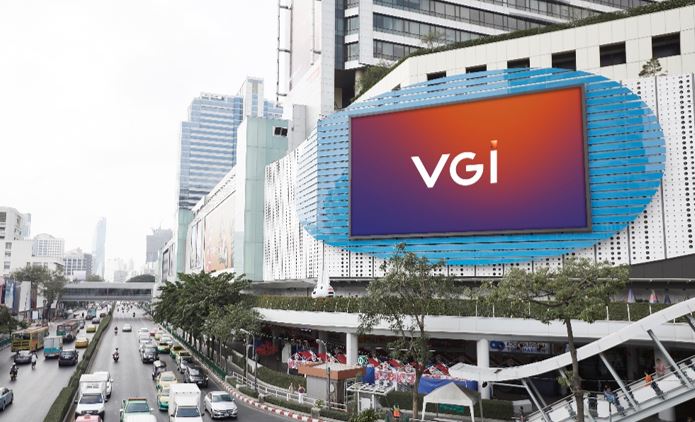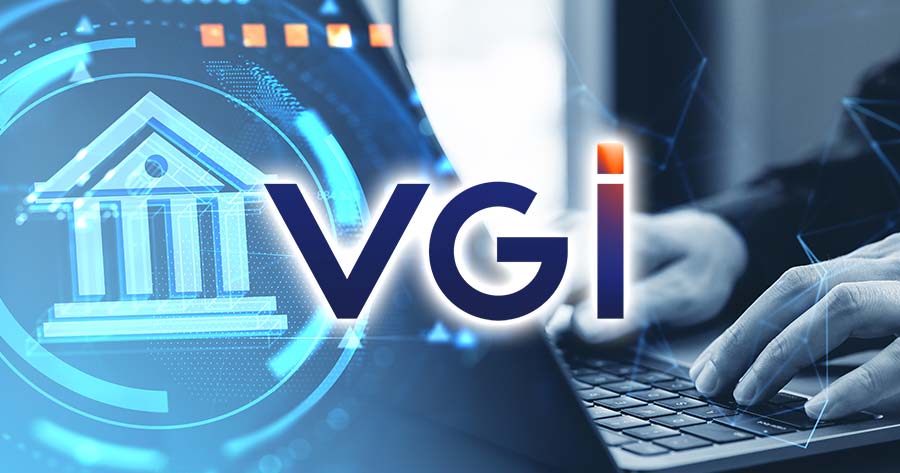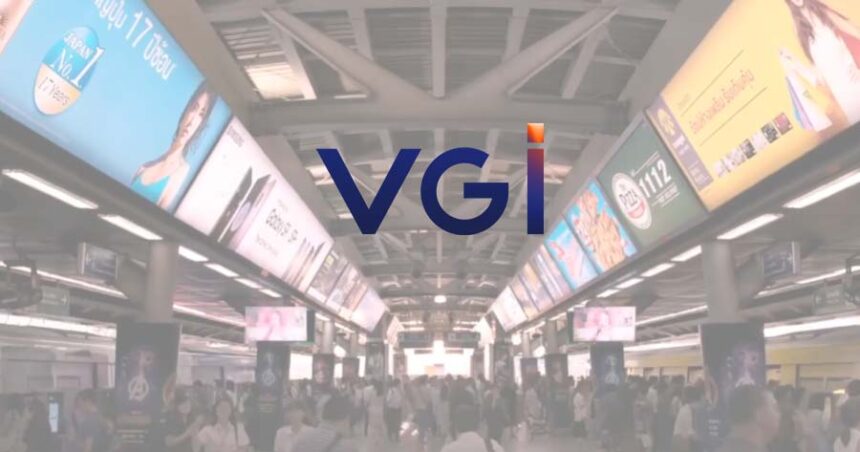BANGKOK – In Thailand’s fast-changing advertising market, VGI Public Company Limited is emerging as one of the country’s most dynamic players. Founded in 1995 as the exclusive media operator for Bangkok’s BTS Skytrain, the company is now in the midst of a transformation that is reshaping it into a hybrid between outdoor advertising, digital media and financial services.
Today, however, the business is no longer defined solely by billboards and train panels. Over the past five years, VGI has embarked on a diversification drive that is reshaping it into a hybrid group straddling traditional media, digital platforms and financial services.
The strategy is beginning to deliver tangible results. Advertising revenues have rebounded strongly alongside the recovery in passenger traffic, while investments in digital payments, data-driven marketing and a planned entry into virtual banking are expanding the company’s scope well beyond its transit roots.

Growth Momentum
The shift comes at a critical juncture for the sector. Globally, out-of-home advertising operators have struggled to compete with the precision and accountability of online media. Yet VGI has sought to turn that challenge into an opportunity, positioning itself as a rare example of an OOH group capable of linking offline consumer engagement to online transactions.
Coupled with growing recognition for its environmental, social and governance practices, the company is now attracting both advertisers and investors who see potential in its integrated approach.
Recent quarters have underscored the momentum. Revenues have climbed at a double-digit pace, buoyed by the rebound in urban transit traffic and renewed demand for out-of-home (OOH) advertising.
At the same time, VGI has expanded its stake in Plan B, one of its main domestic competitors, strengthening its grip on Thailand’s fragmented advertising market. Scale and network reach, long considered decisive in OOH, are now firmly tilting in VGI’s favour.
Yet the company’s most distinctive shift lies in its embrace of the offline-to-online (O2O) model. No longer simply a manager of billboards and digital screens across Bangkok stations. VGI is building an integrated platform where offline consumer touchpoints connect seamlessly with online transactions.
QR-code activations, digital wallets and data analytics turn a train-station poster into a measurable sales funnel — a proposition that appeals to advertisers seeking accountability from traditional media.

VTI Moving into Finance
VGI is also venturing into finance. Plans to enter the virtual banking sector highlight ambitions to extend beyond media into payments, consumer loans and digital services. For a company rooted in transit advertising, such a pivot signals both the depth of its reinvention and the scale of its growth ambitions.
Institutionally, the group has reinforced its credentials with investors by securing the Stock Exchange of Thailand’s “ESG DNA” certification. In an environment where global brands demand sustainable partners, VGI’s emphasis on environmental and social governance adds another lever of differentiation.

Riding disruption
This combination — consolidation in OOH, expansion into digital, and credibility through ESG — sets VGI apart at a time when traditional media operators face structural decline. By leveraging Thailand’s rapid urbanization and the ubiquity of mobile technologies, the company has positioned itself not as a survivor of industry disruption but as an active beneficiary of it.
As 2025 unfolds, VGI’s trajectory is less about past achievements than about current momentum. Rising revenues, strategic investments and a foray into fintech underscore that its reinvention is not theoretical but already underway. In a sector where global incumbents struggle to adapt, VGI is demonstrating how an Asian media group can turn disruption into opportunity — and emerge stronger in the process.
Related News:
Bank of Thailand Clarifies New Transfer Limits to Combat Rising Online Scams














